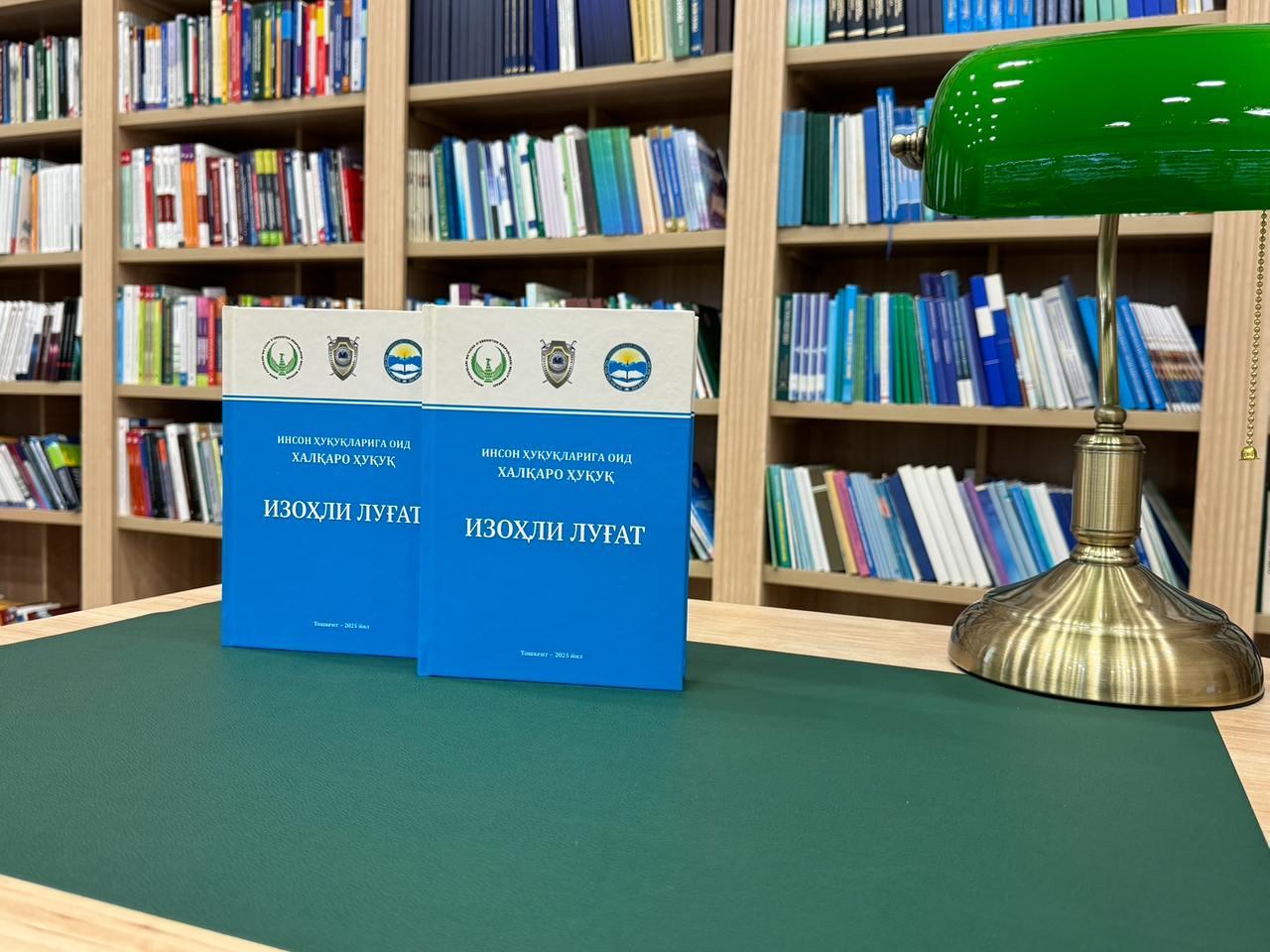For the first time, an explanatory dictionary has been published: “International human rights law”
For the purpose of methodological support in the educational process on human rights and international law, an explanatory dictionary, “International human rights law” has been published for the first time in the history of jurisprudence.
This explanatory dictionary contains terms that define key concepts, principles, norms, institutions, and theories of international law in the field of human rights.
The dictionary’s materials are based on treaty law instruments, documents of international organizations, and contemporary practice. It covers not only specialized terms but also words widely used in law enforcement practice and other branches of legal science.
A distinctive feature of this edition is that it provides detailed explanations of several concepts found in the new version of the Constitution and includes references to useful sources in the form of QR codes.
The explanatory dictionary, containing over 1,300 legal terms, is intended for educators, researchers, students of higher legal education institutions and research institutes, law enforcement officers, judges, lawyers, as well as a broad audience interested in human rights and international legal relations.
This dictionary was prepared under the guidance of the responsible editor, Academician A.Kh. Saidov, and is the result of joint scientific research cooperation between the faculty of the Law Enforcement Academy of the Republic of Uzbekistan, the National Center for human rights of the Republic of Uzbekistan, and Namangan State University.

